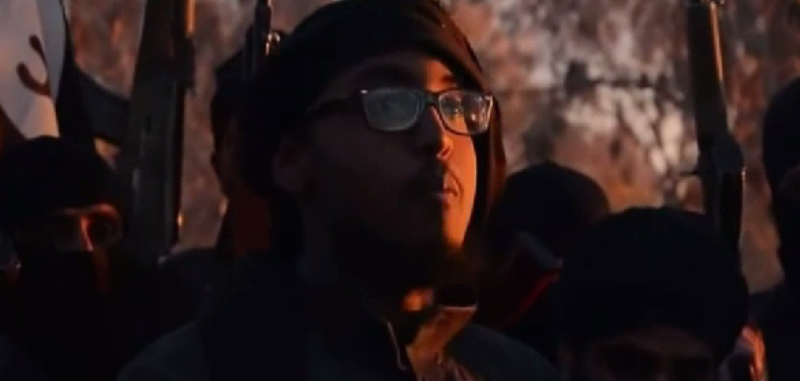Aarhus, a port city of just over 300,000 on the east coast of Denmark, has seen about 30 residents returning from Iraq and Syria, suspected to have fought with radical groups.

But rather than charging them and sending them to jail, authorities are trying to reintegrate them into the community.
The program, in place since January, offers support in the form of education and counselling. But, it’s all voluntary.
He told the Qatar-based news agency many foreign fighters didn’t know what they were signing up for when they volunteered for militant opposition groups battling the regime of Syrian President Bashar al-Assad. Some rebel groups are supported by Western governments, while others have become designated as terrorist organizations — ISIS and al-Qaeda affiliate Jabhat al-Nusra among them.
READ MORE: Canadian soldier dies in Quebec attack ‘linked to terrorist ideology’
“A lot of guys who come home have experienced a loss of innocence and some sort of loss of moral belief. They thought they were going down there for a good cause. And what they found was thugs who are decapitating women and children and raping and killing people…” said Nielsen, who admitted the effort was very much a “trial and error” process and that the program was planned out before ISIS became the dominant extremist group in the region.

Get breaking National news
It’s not an issue unique to Denmark. Canada, with 80 suspected radicals having returned to the country after fighting with groups including ISIS, charges those even attempting to leave the country to take part in activities related to designated terror groups, such as ISIS. It can also revoke the passports of those accused of taking part in terror-related activities.
READ MORE: CSIS can’t cover ‘all the bases’ when monitoring radicals: spy official
University of Calgary political science instructor Michael Zekulin said there is merit to the Aarhus plan, especially considering that there have been past concerns that prisons are “hot beds of radicalization.”
But he explained there are a lot of “grey areas” to consider, such as which organizations a Canadian joins, whether or not it’s a designated terrorist entity, and what activities he or she took part in before coming home.
“There’s no one size fits all here,” Zekulin said in a phone interview, explaining some who join militant organizations may just be uploading propaganda online while others may be taking part in battle or the more gruesome activities for which ISIS has become notorious.
“You should have at your disposal any number of tools,” he said. “You can’t just simply say we’re going to put everybody in jail or, at the same time, I don’t think that it’s reasonable to say that we’re going to offer everybody assistance and support.”
While the Canadian government is enacting measures to deter people from travelling for extremist purposes, and in some cases measures to prevent them from coming back, the Canadian government doesn’t have a de-radicalization strategy, Zekulin added.
READ MORE: ‘We don’t miss,’ public safety minister says of fighting terrorism
Soharwardy said if it’s known someone went overseas and took part in activities with a designated terrorist organization, especially if the returning fighter has killed people, they can’t just be given a free pass because they’re willing to be rehabilitated.
Muhammed Robert Heft, a Toronto-area de-radicalization counsellor, described the issue of de-radicalization as “a hot potato” that no one really wants to touch.
He said law enforcement and government aren’t going to de-radicalize anyone, and the community groups that could make a difference are often short on funding and don’t always get support from government because of ideological differences.
READ MORE: RCMP backs away from anti-terror booklet it helped write with Muslim groups
Heft didn’t think the Aarhus model could work in Canada because of that “disconnect,” but he said it’s a positive example of the various sides working together.
The other concern Heft had about such a plan is that without some element of taking responsibility, there’s nothing holding returning radicals accountable — both legally and morally.
“What’s to prove that they really changed or that they really regret what they’re doing or what they did,” he asked.






Comments
Want to discuss? Please read our Commenting Policy first.